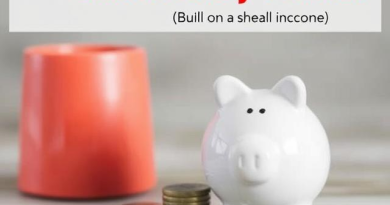How to Pay Off Debt Faster: 5 Practical Strategies for Small Incomes

Introduction
Paying off debt can feel like an uphill battle, especially when you’re working with a small income. But the truth is, it’s possible to tackle your debt and regain control of your finances with the right strategies. In this post, we’ll explore 5 practical, actionable tips to help you pay off your debt faster—no matter how much you earn.
Why Paying Off Debt is Important
Carrying debt can be a major source of stress. It drains your income, affects your credit score, and limits your ability to save or invest for the future. By focusing on paying off debt, you’re not only improving your financial situation, but you’re also giving yourself the freedom to build wealth and live with less financial stress.
1. Start with a Debt Snowball or Debt Avalanche Method
One of the most effective ways to pay off debt is by using either the debt snowball or debt avalanche method. Both methods help you focus on paying off your debts in a structured way, but they have different approaches:
- Debt Snowball: Focus on paying off the smallest debt first, while making minimum payments on larger debts. Once the smallest debt is paid off, move on to the next smallest. This method can be motivating because you see progress quickly.
- Debt Avalanche: Focus on paying off the debt with the highest interest rate first, while making minimum payments on the others. This method saves you the most money in interest over time.
Both methods can work, but choose the one that will keep you motivated and on track.
2. Create a Debt Repayment Budget
Once you’ve picked a repayment strategy, it’s time to create a debt repayment budget. Start by calculating your monthly expenses and income, then determine how much you can realistically put toward your debt each month. Even if you can only afford $25 or $50 extra a month, that’s still progress.
To stick to your budget, track your spending and avoid impulse purchases. If you can cut back on non-essential expenses, you’ll be able to dedicate more toward paying off your debt.
3. Increase Your Income with Side Gigs or Freelance Work
If your current income isn’t enough to make a dent in your debt, consider picking up a side gig or freelance work to bring in extra cash. Whether it’s driving for a rideshare service, freelance writing, pet sitting, or selling unused items, every little bit helps.
The extra income can be directly applied to paying off your debt faster, especially if you dedicate all of it toward your balance. Look for gigs that fit your schedule and skills, and remember to use this extra money strategically to reduce your debt faster.
4. Cut Back on Unnecessary Expenses
The faster you can pay off your debt, the better. To do that, you’ll need to find ways to cut back on non-essential spending. Are there subscriptions or memberships you’re no longer using? Can you reduce your monthly grocery bill by meal planning and cutting back on dining out? Every dollar saved can be funneled into your debt repayment plan.
Pro Tip: Instead of spending on luxuries, consider finding free or low-cost alternatives. For example, swap eating out with cooking at home or use free streaming services instead of paid subscriptions.
5. Negotiate Your Interest Rates and Payments
Many people don’t realize that it’s possible to negotiate with creditors to lower your interest rates or monthly payments. If you have a good payment history, you might be able to call your credit card company or loan provider and request a lower rate or a more manageable payment plan. Lower interest rates mean more of your payments go toward the principal balance instead of interest.
Tip: If negotiating your rates isn’t an option, consider consolidating your debt with a personal loan that has a lower interest rate or using a balance transfer credit card to reduce interest charges.
How to Stay Motivated While Paying Off Debt
Paying off debt is a long-term process, but it’s important to stay motivated throughout the journey. Here are a few tips to keep yourself on track:
- Set small, achievable goals: Instead of focusing on the total amount of debt, break it down into smaller, manageable goals.
- Celebrate your wins: When you pay off a debt or make a big payment, take a moment to celebrate. Recognize your progress, no matter how small.
- Track your progress: Use a debt tracker or budgeting app to visually track your progress. Seeing your balance go down can be incredibly motivating.
Conclusion
Paying off debt on a small income isn’t easy, but it’s possible with a solid strategy and commitment. Start by choosing a repayment method that works for you, create a debt repayment budget, look for ways to increase your income, and cut back on unnecessary expenses. The more consistently you can apply these strategies, the faster you’ll be able to eliminate your debt and achieve financial freedom.



